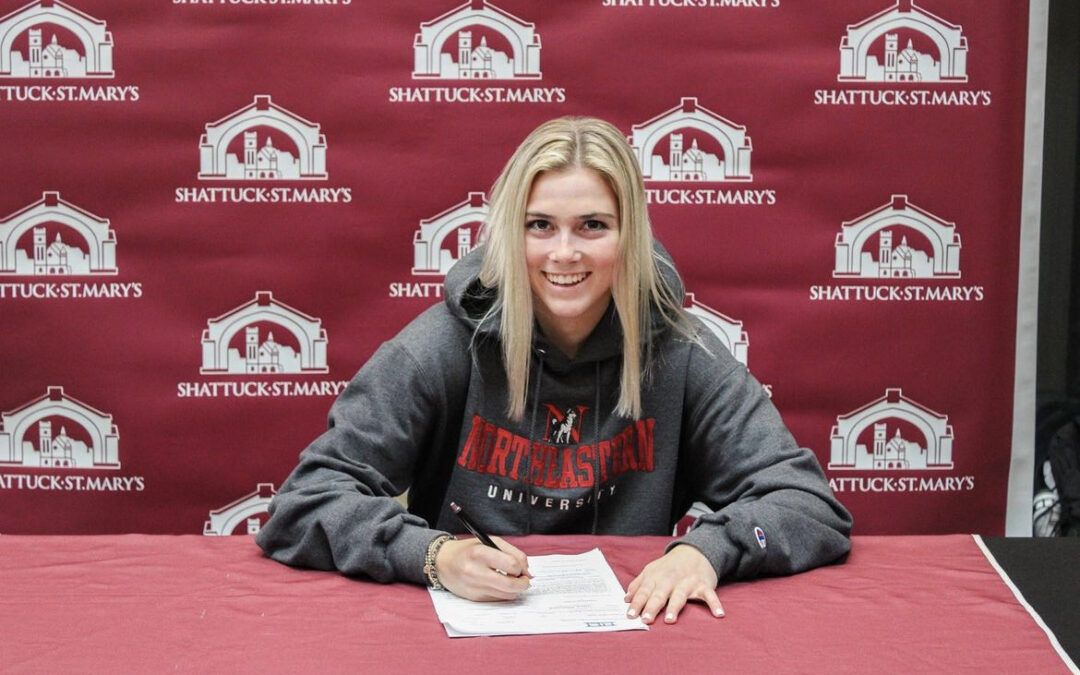Making the jump from high school to collegiate sports is a huge transition. Many athletes feel like they are the best on their team so they will be fine heading to college without thinking that everyone at college is the best on their team too. The bigger difference is that collegiate athletes can be one to five years older. They have mature, adult bodies. They have the experience of playing at the college level. They have the confidence of the coaches that they can compete and succeed at the college level. They may have also waited for their turn to crack the lineup and will not let a freshman come in and take their spot. These are just a few things that can lead to a rough freshman year.
So what can you do to be fully prepared to compete at your best when you get to college? Well, preparation is the key. Preparation can be separated into three parts: sports skills, physical skills, and mental preparation. Utilize your network or create one to address all three pieces for a successful freshman season. Your network can include friends, coaches, or other professionals who work with collegiate athletes. Below is a breakdown of each part.
Sports skills: These are the skills that you use on the ice, field, or court. Some examples could be skating in hockey, goal scoring in soccer, or hitting a baseball. Target your strengths and weaknesses not only your thoughts but those of your past coaches and future coaches in college. Then focus on making your weaknesses your strengths while maintaining your strengths. Spend more time on the things you need to improve. A hockey player may be a great goal scorer and shooting pucks is fun because you’re good at it, but focus on skating skills if that is your weakness. It may not be as fun at the time, but it will pay off when you get to the next level.
Physical skills: This is related to your athletic performance. Are you fast? Are you strong? Are you powerful? Where are your strengths (no pun intended) and what are your weaknesses? How do they relate to your sport and your success in your sport? If your greatest attribute is your speed and you want to gain weight to get stronger, you need to balance so you don’t gain too much weight and slow down. Do you train for your sport or do you just go to the gym? Is there a purpose in your training? Most schools will send you a workout packet to prepare. These can be vague or ultra-specific. Working with a professional in the field who can teach you proper techniques for lifts along with proper mechanics with various drills so you are better prepared when you get to school. They can also modify the program to make it more specific to your needs. Lastly, enter college athletics healthy. Make sure your body feels good and is injury-free. A slow start due to injury can ruin a season.
Mental Preparation: Are you in the proper mindset entering college? Not only is there a major change in your sports life, but a change in academics along with general life. Will you be prepared to manage sports, school, and living on your own? Have a plan before leaving for college. Talk to friends and other athletes about their struggles entering their freshman year and how they handled it. Set yourself up for success by preparing yourself for the changes such as balancing your time for school and sports, how to get academic help that is available for athletes, how to set up a proper nutrition plan whether that’s when and what to eat or how to food prep so you are fueling your body enough.
Transitioning to college sports is a fantastic, yet scary beast. Being well-prepared will lead to your success. Taking the steps previously mentioned will have you feeling more confident entering college, not only as an athlete but as a young adult.
Chris Phillips is an Athletic Trainer and Strength and Conditioning Specialist with over 30 years of experience in professional and Olympic sports. He is the owner of Compete Sports Performance and Rehab in Orange County, CA. Compete has had over 150 athletes commit to playing college sports.

